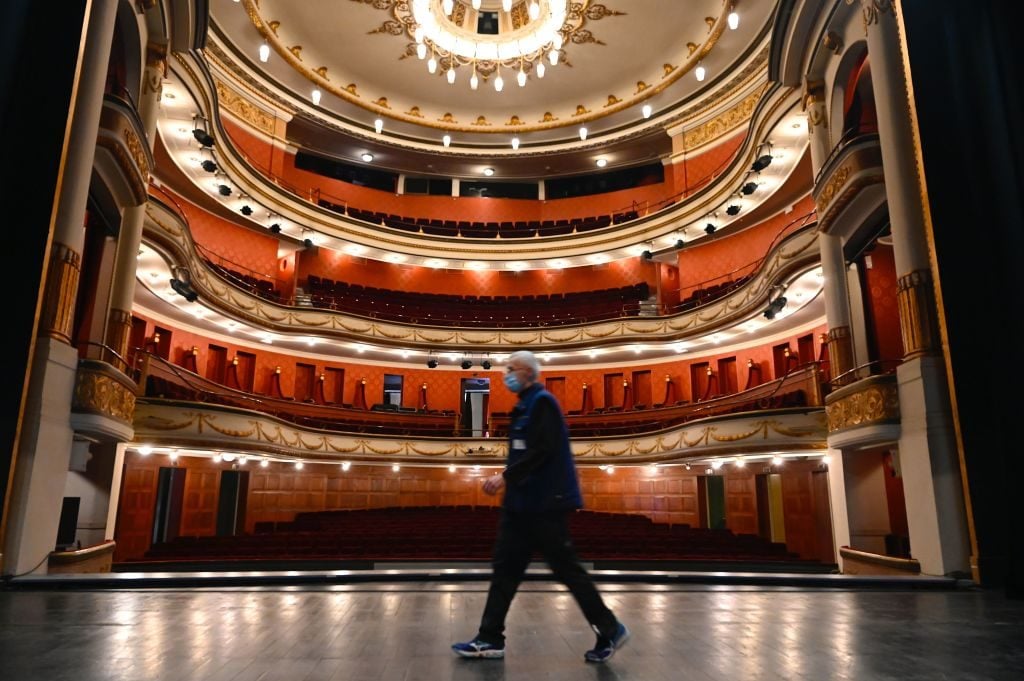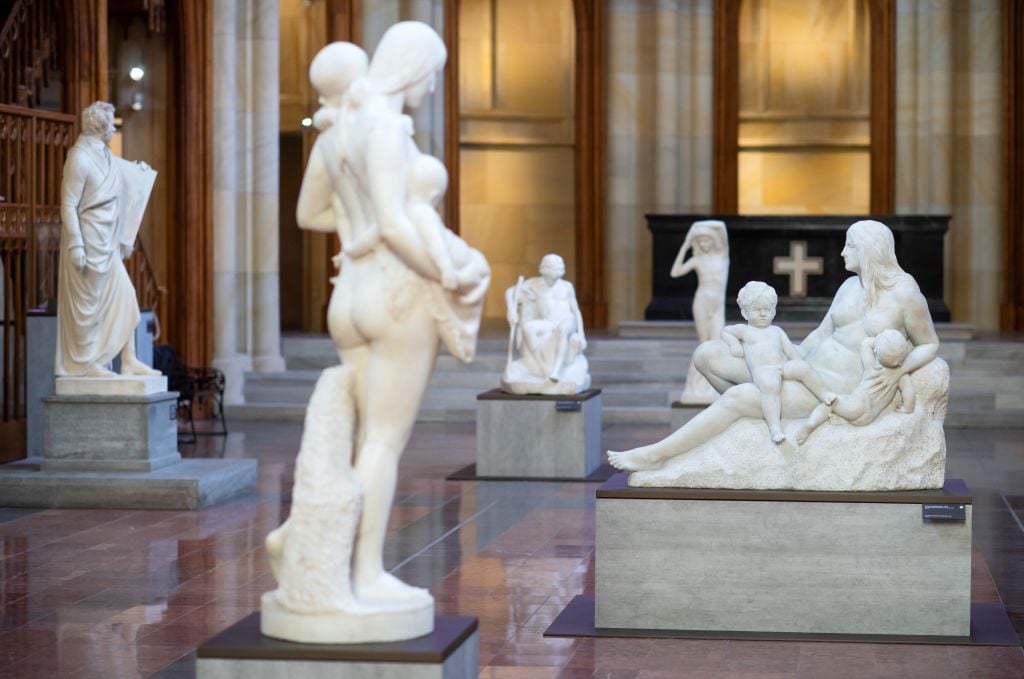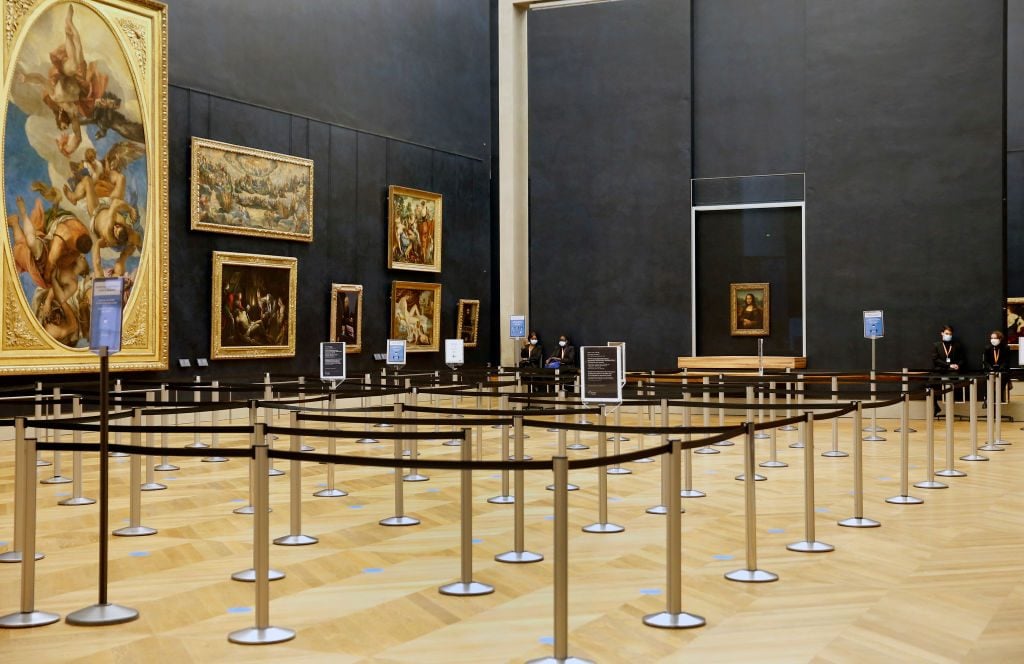Art World
Struggling French and German Museums Are Plunged Into a Second Lockdown as Coronavirus Cases Surge Across Europe
Protests have already erupted over the new lockdown measures.

Protests have already erupted over the new lockdown measures.

Kate Brown

With coronavirus transmission rates bursting across Europe, Germany and France announced sweeping new rules yesterday, closing cultural institutions as they try to prevent hospitals from becoming overwhelmed.
In Germany’s so-called “lockdown lite,” restaurants, theaters, and a slew of other services must remain closed for most of November. Museums, which were not specifically mentioned in the new regulations, are awaiting further instruction, sources tell Artnet News.
In France, all museums and theaters will shutter for the month, and people have been told to remain home and to leave only for essential tasks.
German Chancellor Angela Merkel and French President Emmanuel Macron pleaded with the public to respect the rules. Germany had 15,000 new cases on Wednesday; on Tuesday, France clocked 33,000.

Theatre de la Sinne in Mulhouse, France. Photo: Sebastien Bozon/AFP/Getty Images.
“The virus is circulating at a speed that not even the most pessimistic forecasts had anticipated,” Macron said in a national address.
As the new rules were being discussed yesterday in Berlin, thousands of culture and entertainment industry workers, including artists, marched on the capital, with signs proclaiming “culture is dying.”
Merkel was frequently interrupted by lawmakers this morning as she defended the government’s new coronavirus measures.
“Freedom isn’t being able to do whatever you want,” she said. “Freedom is taking responsibility.”
Both nations have provided substantial bailouts this year. Germany handed out over €1 billion in cultural aid, in addition to bailouts for individuals issued earlier this spring.
In France, unemployment benefits were extended and museums got a $2.4 billion aid package this fall.

Sculptures at the Friedrichswerder Church in Berlin, which is set to reopen after a major revamp, though it could be affected by the new rules. Photo by Bernd von Jutrczenka/picture alliance via Getty Images.
In Germany, each state must implement its own plan while according with national rues, allowing for some measure of interpretation. In Baden-Württemberg, museums will close, but the Museum Ludwig in Cologne, for example, is still waiting for instructions from the North Rhine-Westphalia state. The Prussian Cultural Heritage Foundation, headquartered in Berlin, is also awaiting state instructions.
“The situation is different from state to state, so we may not need to take the new regulations 1:1,” a spokesperson for Berlin culture minister Klaus Lederer told Artnet News. The Berlin senate will discuss its new regulations today.
Meanwhile, Germany’s Museums Association released a strongly worded statement this morning pressuring governments to think carefully about forcing cultural institutions to close.
“Museums have prepared themselves intensively for this crisis and they have successfully implemented distance and hygiene rules,” the statement said. “To close museums again now would be a serious injury.”

The Louvre Museum. Photo: Chesnot/Getty Images.
Galleries in Germany, which are considered retail shops, will likely remains open. But trade fairs will be banned in November, which almost certainly spells the end of the already postponed Art Cologne fair. The event, which was set to open on November 18, declined to comment on the new regulations.
While German cultural venues have until November 2 to make closure plans, French museums are already closing down. The Louvre, the Musée d’Orsay, and the Petit Palais all confirmed via Twitter that they would close this evening. The French ministry did not immediately respond to Artnet News’s questions about future bailouts.
Belgium already announced the forced closure of most venues, including museums, this week, as it rushed to fight the highest infection rate on the continent. Spain, meanwhile, has yet again declared a state of emergency. And in Italy, theaters and other public venues were closed for another month, leading to protests in several major cities.